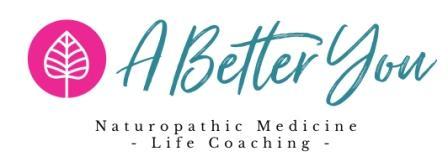Many women who I talk to are not really sure what the term "Perimenopause" means, and they're not sure if it's something that applies to them.
Perimenopause simply means "around Menopause", and refers to hormonal changes that can occur during the 2-12 years before Menopause.
This time frame is important, because it means that our hormones can start to change long before Menopause is even on the horizon.
Menopause (as opposed to Perimenopause) is technically the life phase that starts exactly 1 year after your last period.
What Happens In Perimenopause?
It can start in your late 30's, but it most commonly starts in your 40's. The average age is around 45. Your cycle may still be quite regular, but you may get the odd "quite early" period. You may also get the odd "quite late" period as well. Other really common changes are things like:-
- Heavier and "longer flow" periods
- Shorter cycles (25 days or less)
- Swollen and /or lumpy breasts
- Increased mood swings
- Premenstrual and/or menstrual cramping
- Onset of migraines
- Overwhelm and anxiety
- Weight gain which doesn't seem to be the result of other lifestyle changes
- Night sweats/hot flushes especially before a period
- Disturbed sleep
Some of these symptoms may be new, and others may have been around for a while. You don't have to have all of them to be experiencing Perimenopause.
Why Do These Changes Happen?
Firstly, you might've heard that your Oestrogen levels start to decline in Perimenopause, but this isn't usually the case. Oestrogen levels are often high during this time, and the truth is that Oestrogen can fluctuate wildly from cycle to cycle (and in between), which is why sometimes you might have a really normal cycle, then perhaps an "awful" one with more of the symptoms mentioned above.
While your Oestrogen levels are on their little roller coaster ride, your Progesterone levels are starting to decrease and "exit stage left". This is because the ovaries are becoming "tired", and just aren't as active or responsive as they used to be. I call Progesterone the "hormone of serenity". That's because it calms your nervous system and also counteracts the effects of high Oestrogen. Higher Oestrogen levels can cause things like heavy, clotty, painful periods, anxiety, weight gain and some of the other symptoms of Perimenopause that we've mentioned above.
So, as your Progesterone drops, your Nervous System has to adapt, and for a while, you may feel more tired, more sleep deprived, more anxious or depressed, and more "strung out" than you used to. This can put a load on your Thyroid and Adrenal Glands too, making the symptoms of Perimenopause even more pronounced.
So How Do We Manage It?
It's important to know that it IS a phase of your life that won't last forever, and that we can definitely reduce the symptoms greatly, so that you feel more like yourself. The main things we need to do are:-
- Support the Adrenals and the Nervous System
- Support Progesterone
- Metabolise Oestrogen
- Reduce inflammation
And How We Do This?
Here are some of my favourite (and most successful) ways of helping my clients (and myself!) to manage Perimenopausal hormone fluctuations and symptoms:-
- Become a Self-care guru - experiment with things that help you to relax, re-group and get your energy and mojo back (like yoga, meditation, walking, a masssage etc) and schedule it in as a regular event.
- Increase your Greens (with things like more veg, green smoothies, a greens powder, liquid chlorophyll) - this helps your Liver and Bowel to metabolise and detox excess Oestrogen.
- Reduce caffeine and alcohol where you can - they both increase Cortisol, a potent stress hormone which "steals" much needed Progesterone from your body.
- Magnesium - a life-saver for most "hormonal" symptoms. It calms the Nervous System, promotes sleep, nourishes the Adrenals and helps regulate blood sugar fluctuations.
- Taurine - an amino acid that also calms the brain and is often depleted when our Hormones are out of balance. There are some supplements that contain both Magnesium and Taurine, but you can also get more Taurine from increasing your intake of animal protein (organic meats, eggs and seafood).
- Vitamin B6 and other B-Vitamins - these work to calm the Nervous System and also help to metabolise Oestrogen.
- Adrenal Tonics - I love herbs that nourish the Adrenal Glands and Nervous system and promote sleep! Some of my faves are Magnolia, Withania, Zizyphus, St John's Wort, Siberian Ginseng and Passion Flower.
Everyone is different, so it's also about finding what works for you. Muscle testing (Kinesiology) is a great way to find out what's out of balance in your body and exactly what type of support you need. I also recommend lab testing in relation to your Hormone levels as well as your Thyroid and Adrenal function. Having a baseline for these will help us greatly to support and balance your body.
If you'd like more info on anything we've talked about on this blog, or want to have a complimentary phone chat to establish where you're at with your Hormones and your Health, just hit REPLY and let me know!
Talk soon,
Leanne xx
